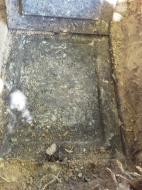What are the major “dos” and “don’ts” of maintaining a trouble-free system?
DO THIS
•Conserve water to reduce the amount of wastewater that must be treated and disposed.
•Repair any leaking faucets and toilets.
•Only discharge biodegradable wastes into system.
•Restrict garbage disposal use.
•Divert down spouts and other surface water away from your drainfield.
•Keep your septic tank cover accessible for tank inspections and pumping.
•Have your septic tank pumped regularly and checked for leaks and cracks.
•Call a professional when you have problems.
•Compost your garbage or put it in the trash.
DON’T DO THIS
•Flush sanitary napkins, tampons, disposable diapers, condoms, wipes and
such products into your system.
•Dump solvents, oils, paints, thinners, disinfectants, pesticides or poisons down the drain which can disrupt the treatment process and contaminate groundwater.
•Dig in your drainfield or build anything over it.
•Plant anything over your drainfield except grass.
•Drive over your drainfield or compact the soil in any way.—Source, NOWRA
Septic System Inspections and Troubleshooting
Septic Tank and Septic System Repairs – You can rely on us whenever you need a repair, and whenever you’re scheduled to have maintenance. We repair and maintain all leading systems.
Drainfield Repair – Your drainfield can become damaged by excess water, plants and shrubbery, vehicle traffic and parking, and for a variety of other reasons. It’s critical to have damage addressed to restore proper functioning. We provide expert repair service for any kind of drainfield problem.
Inspections/Troubleshooting - Inspections of waste disposal systems are a proven way to prevent costly unanticipated repairs. Inspections also assure you that you are disposing of sewage and gray water waste safely and legally. We offer thorough inspection (and peace of mind) at an affordable price.
Periodic pumping of septic tanks is now required by law in the State of Virginia.
In 1991 Fairfax County, Virginia, amended its onsite systems management code to require pumping at least every 5 years. The action, which was based on provisions of the Chesapeake Bay Preservation Act, was accompanied by public outreach notices and news articles.
System owners must provide the county health department with a written notification within 10 days of pumpout. A receipt from the pumpout contractor, who must be licensed to handle septic tank residuals, must accompany the notification.//
Based upon soil conditions, age of house and number of occupants, we here at Ashleys Septic
will recommend a more frequant pumping than required by Law.
Regular Maintenance will save you money in the long run.
It is estimated that nationwide,
between 10 and 20 percent of Septic systems are malfunctioning
as a result of inadequate management.
Septic systems are identified by State water quality agencies
as the second greatest threat to groundwater quality
(the greatest threat is leakage from underground storage tanks).
.


